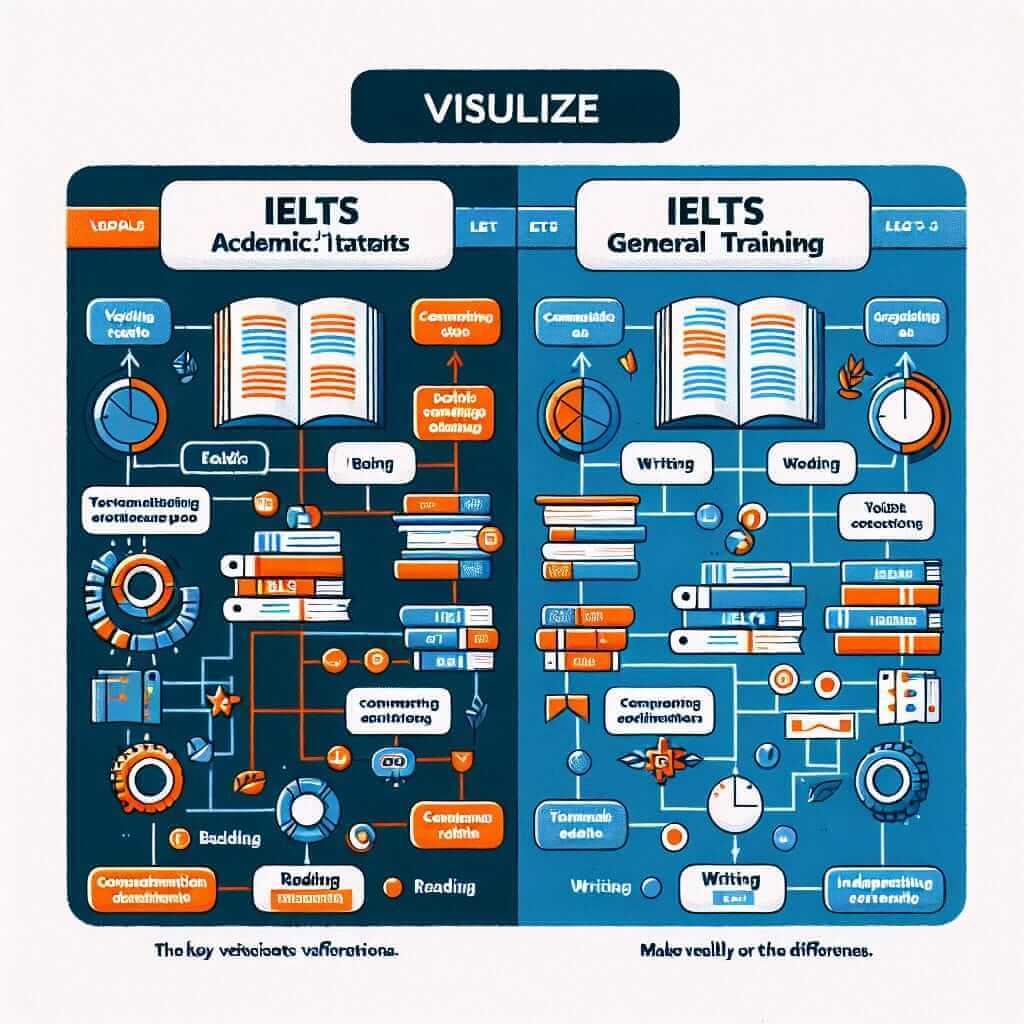Introduction
Choosing the right IELTS test format is crucial for your success, and understanding the differences between IELTS Academic and General Training is paramount. Whether you’re aiming for higher education or seeking global opportunities, this comprehensive guide, crafted by an experienced IELTS instructor, will equip you with the knowledge to make an informed decision and excel in your chosen test.
IELTS Academic vs. General Training: What’s the Difference?
While both versions assess your English language proficiency in Listening, Reading, Writing, and Speaking, their content and target audience differ significantly.
IELTS Academic is designed for individuals aiming to:
- Pursue undergraduate or postgraduate studies in English-speaking countries.
- Register with professional bodies where English language proficiency is mandatory.
IELTS General Training caters to those who:
- Plan to migrate to countries like Canada, Australia, New Zealand, or the UK.
- Seek secondary education or training programs.
- Aim for work experience in an English-speaking environment.
Deciphering the Differences
1. Reading Section
IELTS Academic:
- Features longer and more complex texts from academic journals, books, and newspapers.
- Focuses on academic vocabulary and understanding complex sentence structures.
IELTS General Training:
- Includes texts from everyday life scenarios, such as advertisements, notices, and company handbooks.
- Emphasizes practical comprehension skills, including understanding instructions and information presented in various formats.
2. Writing Section
IELTS Academic (Task 1):
- Requires describing, summarizing, or explaining visual data presented in graphs, charts, or diagrams.
IELTS General Training (Task 1):
- Involves writing a letter in response to a given situation, such as requesting information or explaining a problem.
Note: Both versions share Task 2, which is an essay writing task based on a given opinion, argument, or problem.
3. Speaking & Listening Sections
Both IELTS Academic and General Training maintain similar formats and assess general English language proficiency. However, the topics and scenarios in the Speaking section might slightly differ, catering to the specific test version.
Making the Right Choice: Which IELTS Test is for You?
Your choice between IELTS Academic and General Training depends entirely on your future goals:
- Academic Aspirations: Opt for IELTS Academic if you are targeting higher education or professional registration.
- Global Mobility or Work Experience: Choose IELTS General Training for migration, work experience, or training programs.

Tips for IELTS Success
- Understand your test format thoroughly.
- Practice extensively using official IELTS materials.
- Enhance your vocabulary and grammar skills.
- Familiarize yourself with different question types.
- Seek feedback from experienced IELTS instructors.
- Manage your time effectively during the test.
Conclusion
Choosing the correct IELTS test format is the first step towards achieving your desired outcome. By understanding the differences and aligning your preparation strategy, you can confidently approach your test and unlock a world of opportunities. Remember, consistent effort and expert guidance are key to acing your IELTS examination.